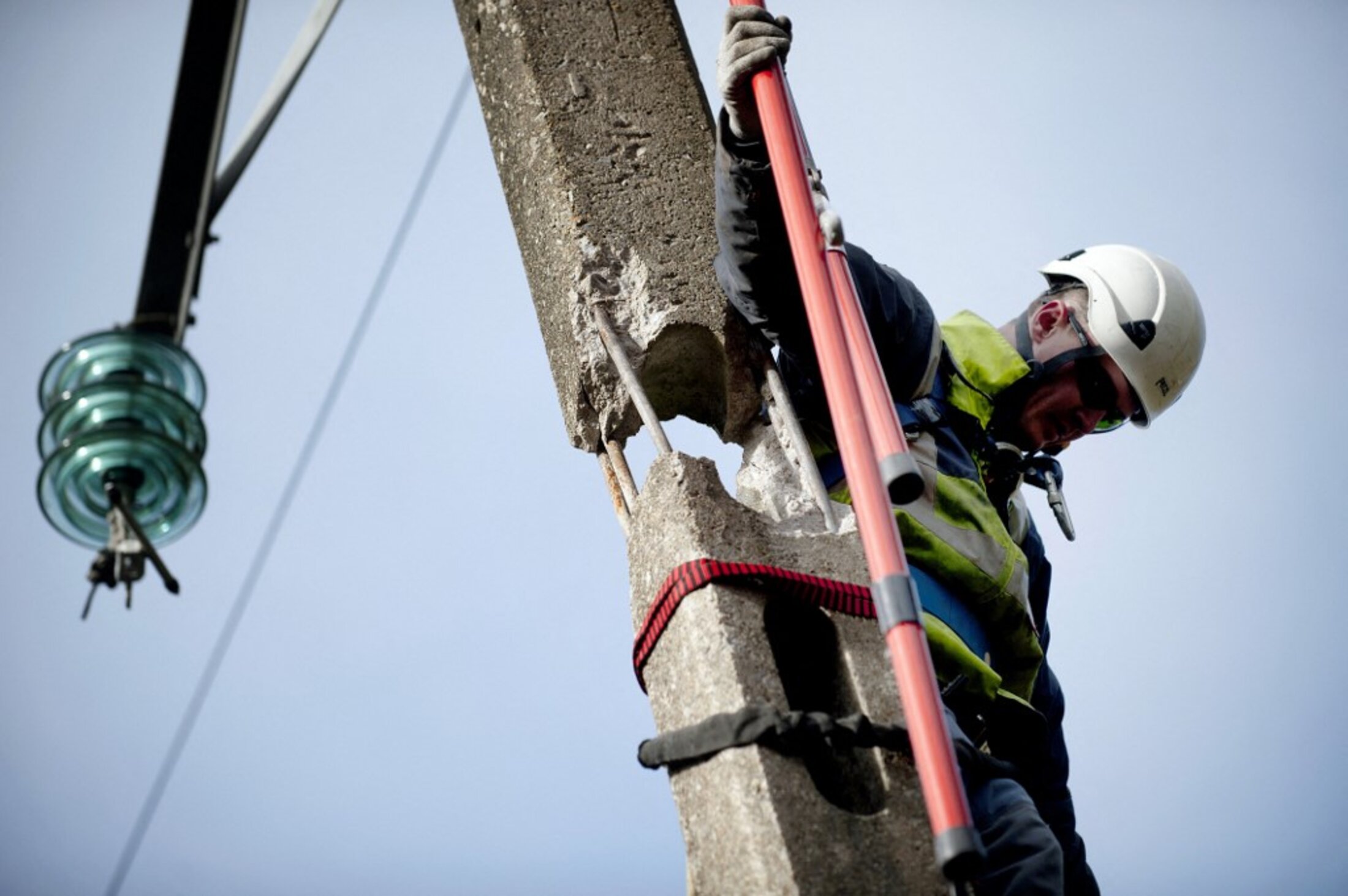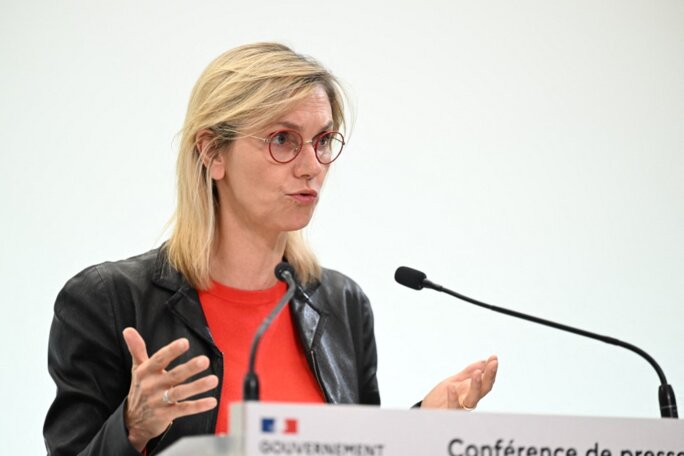Denial and procrastination have been the hallmarks of Emmanuel Macron's administration when confronted by something difficult. The unprecedented energy crisis engulfing France and the rest of Europe is no exception.
Despite the threats that this crisis poses for everyone, the French government has ducked the issue and hesitated, maintaining the illusion that things will return to normal some time soon. The price cap on energy bills that the government introduced earlier this year fits with this approach: ministers want to portray it as an exceptional measure for difficult times that will disappear as soon as possible.
Ministers have brushed aside any criticism of their stance and argue that they acted “well before other European countries” by introducing that cap on gas and electricity bills for households in January this year. “It's a measure that has protected household spending,” the government likes to insist. It also notes that the move has helped keep a lid on inflation, which could have undermined its supply-side economic policies.
Prime minister Élisabeth Borne is continuing to approach the French and European energy crisis through the prism of budgets. On September 14th she announced that the price cap would continue into next year, limiting rises in household and local council gas and electricity bills to 15%. Cheques for up to 200 euros will also be sent to the poorest households.
At a time when everyone is panicking about the explosion in energy costs there is certainly a need for financial measures to counteract the devastating effects of the rises, or face the risk of households gradually being overwhelmed, as in Britain and even Belgium. However, cheques for 100 euros or 200 euros may well not be sufficient to ward off energy poverty and indebtedness.
In any case, a financial response alone will not be enough in the teeth of a multidimensional energy crisis that involves both supply and demand, our industrial production methods and our consumption habits, the organisation of our markets and our appetite for fossil fuels, which despite grandiose declarations has never really gone away.
As well as the market speculation which has hit energy markets and taken prices to insane levels, the increases since the summer of 2021 are also the result of this dysfunctionality and past errors.
Short, medium and long-term measures are needed now to resolve these tensions and build a new system that ensures both energy security and respect for climate objectives. It will also require greater awareness, even a general mobilisation campaign, to get these changes accepted, given the upheaval and shortages that this crisis will soon bring about and which over the coming years will disrupt our habits and lifestyles.

Enlargement : Illustration 1

Avoiding the energy issue
But the government never talks about these issues. Not once was the energy crisis tackled seriously during this year's presidential and legislative elections, with a lively debate over how many new EPR nuclear reactors to build being regarded as enough to cover the issue.
Nor was the subject raised during the Parliamentary session over the summer. And despite the level of the energy shock, all Parliamentary discussions on the matter have been pushed back until October 3rd, as the government has decided that there is to urgent need to recall the National Assembly.
In the meantime, like during the Covid epidemic, we just have to wait for yet another meeting of the executive's Conseil de Défense, for one of Emmanuel Macron's magisterial decisions, and the outcome of meetings organised by the Ministry of Ecological Transition that will only be complete by mid-October at the earliest.
What are the appropriate measures to reduce our gas consumption by 15%, our electricity consumption by 10% and even by 5% at peak hours, as the European Commission (EC) is recommending? In her State of the Union speech on September 14th the EC president, Ursula von der Leyen, raised the possibility of taking restrictive and compulsory measures. How will these efforts be split between households and businesses? Who will decide? And according to what criteria? We still have no idea.
Plans to economise across all of Europe – except France
In April the Italian government adopted a series of restrictive measures involving limits on the temperature in public buildings and on night-time lighting, plus a ban on luminous advertising.
The Spanish government took similar steps, reducing energy consumption in public buildings, urban lighting and advertising lighting. Having got permission from Brussels in April to temporarily leave the European electricity market – at a stroke the price per Mwh went down to around 100 euros against 500 euros elsewhere – Madrid still continued with its efforts and urged its population to cut energy use as much as possible.
During the spring the German government meanwhile worked with its Parliament, the Bundestag, and regional governments to draw up a detailed plan, based on any future supply issues, about what measures to take and who would be affected. Everyone, from large corporations to individual households, knows what the plan is. At the same time a huge awarenesses campaign was launched among the whole population, encouraging people to save energy, and even going so far as to call for shorter showers and to use cold water. “Every gesture, even small ones, count,” say the German authorities.
In France we had to wait until the end of the summer holidays before the word “restraint” appeared in government vocabulary. Doubtless ministers felt that using the expression “energy savings” had too many connotations of being 'Amish', the word used by Emmanuel Macron in 2020 to criticise those who opposed 5G mobile phone technology, whom he suggested wanted to take us back to the days of the “oil lamp”. Apart from that there has been nothing concrete. There have been vague calls for reduced energy use but it has been left to households, local authorities and companies to decide what steps to take.

Enlargement : Illustration 2

During a press conference about the energy situation on September 14th the minister for energy transition, Agnès Pannier-Runacher, did however reveal that she has a massive weapon of deterrence at her disposal. “At times of strain in electricity [supply] I can order all advertising panels to be turned off,” she declared. Well, it's better than nothing!
November and December could be as tricky as January.
Yet the urgency of the situation means there is no more time for dithering, as was pointed out with some firmness by the body in charge of managing France's high-voltage electricity grid, RTE, at its press conference on September 14th. In fact, the situation is so tight that the organisation has decided to bring forward its winter operations to October. “November and December could be as tricky as January,” warned Xavier Piechaczyk, president of the managing board at RTE.
The uncertainties bearing down on the French electricity system are everywhere. No one at this stage can say if energy supplier EDF has the capacity to bring more of its nuclear power stations back on stream – currently 30 out of its 56 nuclear plants are not in operation. There are also doubts on the other forms of energy supply available. And the weather conditions this winter are an unknown factor. “The worst-case scenario [editor's note, leading to measures to cut off some households] is quite improbable,” said Xavier Piechaczyk.
RTE is in any case doing all it can to avoid such measures, by insisting upon the need to start saving energy now. It has set out clear, easy to understand measures to tackle any immediate potential shortages.
Reducing homes' central heating by several degrees to take it down to 19°C could save the equivalent of the output of two nuclear power stations. If people swap their old light bulbs for LED lights and turn off the lights in unoccupied rooms, that is another gigawatt saved. Not using electrical appliances and in particular the oven during peak periods (8am to 1pm and 6pm to 8pm) can save enough energy to reduce strain on the electricity distribution network.
In addition, RTE has bolstered its alert system 'Écowatt', which is comparable to the orange and red weather alerts issued by Météo-France, in order to be able to warn people in the three days before difficult periods and urge them to take further economy measures.
By taking these initiatives RTE is accepting responsibility for its role as managers of the main power grid. But it is the only body doing so at the moment and its comments throw into stark relief the government's absence on such issues. It is high time that there was a discussion at all levels about energy-saving policies and for a national debate to start.
----------------------------------------------------------------------------------
- The original French version of this op-ed article can be found here.
English version by Michael Streeter


